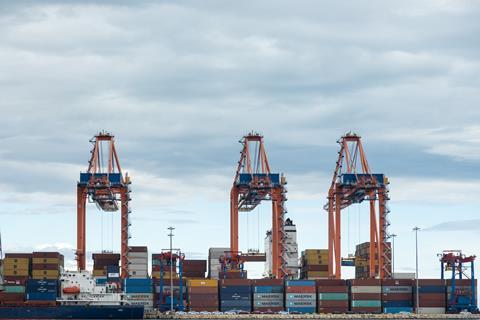Port congestion has eased off in southern Turkey two weeks on from the earthquake, but low availability of trucks, diverted to the disaster zone, is pushing up prices
The impact of the 6 February earthquake in southern Turkey and northern Syria, the strongest to hit the region in decades, has been widespread – the lives lost, the huge numbers affected, the homes destroyed, the infrastructure devastated.
The region is one of Turkey’s main fruit and vegetable production areas, and although the trees themselves are unaffected, new priorities mean that workers are harder to find, while damage to the port of Iskenderun, mainly used for Turkish exporters’ Middle East operations, reportedly caused congestion at Mersin as ships were rerouted.
Coskun Eren, head of marketing at Eren Tarim, based near Mersin, expressed relief that that congestion was only short-lived.
“The port of Iskenderun is now operating at close to normal capacity, with a few minor issues,” he tells Fruitnet, “so the congestion at Mersin was temporary. Ships were rerouted for around three weeks, and there are still some problems on the roads, as well as some gas and electricity issues in the Hatay region.”

The central issue, he says, is that everyone is affected somehow. “I don’t know anyone who didn’t lose someone,” he says, “so it’s been very hard to reach people in recent weeks and find workers. People were sleeping in their cars in 15-20 cities, even if the buildings weren’t damaged. Now, most have overcome that fear and have returned to their homes and come back to work.”
Workers may be returning, but according to Eren, availability of trucks remains a problem. “It’s still difficult to get trucks as a lot of trucks have been rerouted to the disaster zone and the government is paying truckers to bring supplies 24/7,” he says. “Demand for trucks is huge so obviously the logistical costs are up at the moment for land transportation.”



